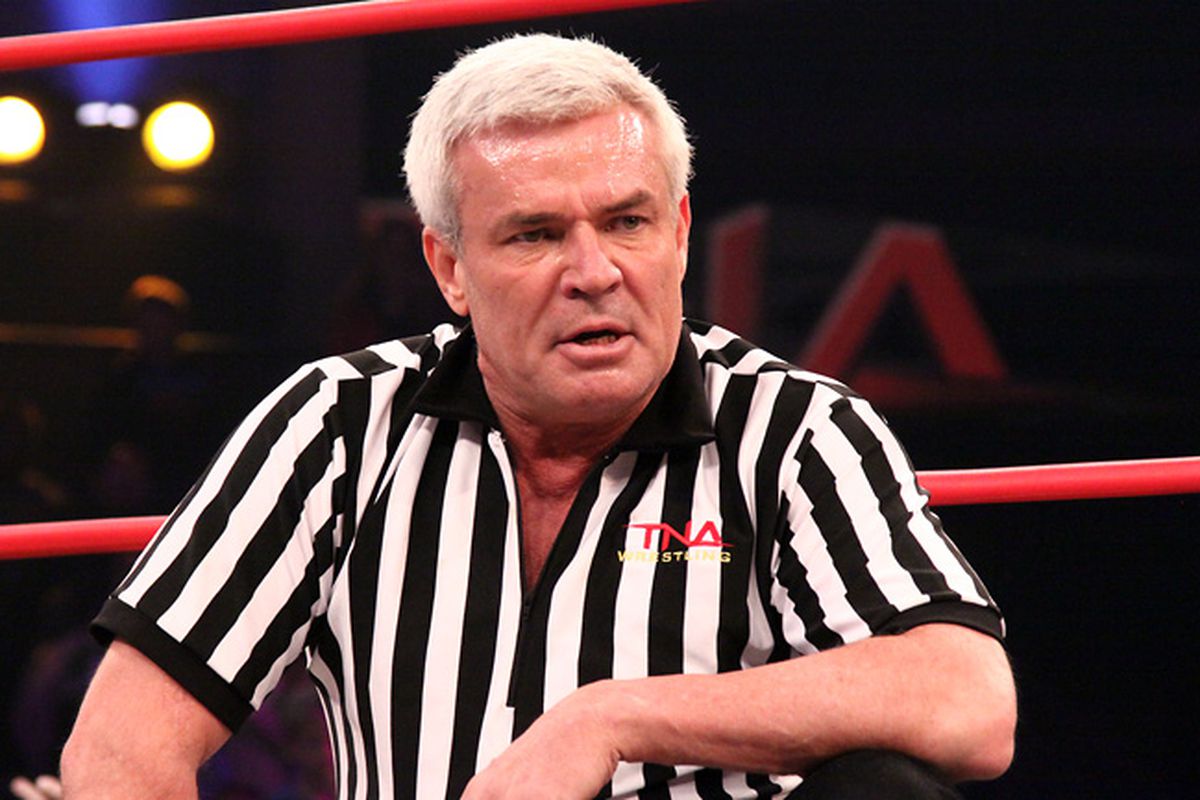
On a recent edition of his “Strictly Business” podcast, WWE Hall of Famer Eric Bischoff discussed handling WCW talent contracts, traveling and airfare, and more.
You can check out some highlights from the podcast below:
On how airfare is negotiated with airlines when booking talent: “It’s no different than some of the talent who had first class as part of their agreements. It’s reflected in their contracts, the people who did travel were advised of that. They knew that there was a list of everybody who was first class, according to contract. And if your name was on that list, when they booked your flights they booked you first class. If your name was not on that list, then they booked you coach… WCW paid for all travel.”
On why he didn’t pay for air travel while in WWE: “It may have been different [there], because I wasn’t a wrestler. There may have been different categories of talent. Because again as a GM, especially one that only showed up one day a week in most cases. It’s not like I was out in house show loops and things like that. There’s no opportunity for me to make merchandise money. There are no upside opportunities for a General Manager for the most part. So maybe that was the difference, I don’t know. But no, they covered all my travel.”
On whether he handled contract talks with all talent: “I very seldom dealt with contractual issues unless it was, you know, something unique. Randy Savage, Hulk Hogan, a renegotiation for example with Bill Goldberg. That was a little tricky. He wasn’t even due to be renegotiated, and we ended up having to renegotiate with him. So unless a contract was very unusual or it involved — trying to think of the politically correct way to say it, but I don’t give a f**k. Unless the contract negotiations were relevant to a star of a specific magnitude? Those I would handle, or at least be kept very much in the loop if I wasn’t negotiating with them myself. I would be very much in the loop, like copied on everything, made aware of every phone call with attorneys or managers or whatever. But that didn’t happen that often when you think about it
“I would say 80% of the contracts were negotiated or renegotiated without my involvement, so long as they fit within a budget. You know, we had a budget allocation. Somebody wanted — if Kevin Sullivan, for example, had somebody that he really believed in, and that person was coming up for renewal, Kevin would let me know. Or talent relations, or Diana Meyers, usually Nick Lambros would have said, ‘Hey Kevin, these individual’s got six months left in their deal or three months left in our deal, whatever the case may be. I just want to give you a heads up so we can plan accordingly creatively.’ So we weren’t booking somebody into a very, very significant opportunity storyline-wise, only to find out that, ‘Oh, we have to renegotiate because their deal’s up next week.’ You know, you didn’t want that to happen. I’d approve those, you know, but I wouldn’t get involved in them.”
In a recent episode of his podcast, “Strictly Business,” Eric Bischoff, a WWE Hall of Famer, shared insights into handling WCW talent contracts, airfare negotiations, and his involvement in contract talks. Here are some highlights from the podcast:
When it came to booking talent and negotiating airfare, Bischoff revealed that WCW had different arrangements based on talent contracts. Some wrestlers had first-class travel included in their agreements, and their names were listed accordingly. If a wrestler’s name was on the first-class list, they would be booked for first-class flights. If not, they would fly coach. However, WCW covered all travel expenses for its talent.
Bischoff also discussed his experience in WWE and why he didn’t have his air travel expenses covered there. He speculated that it might have been different because he wasn’t a wrestler and had limited appearances. As a General Manager, he didn’t have the same opportunities for merchandise sales or other revenue streams. Therefore, WWE didn’t cover his travel expenses like WCW did.
Regarding contract negotiations, Bischoff clarified that he rarely dealt with contractual issues unless they involved high-profile stars or unique circumstances. He mentioned examples such as Randy Savage, Hulk Hogan, and a renegotiation with Bill Goldberg. For the most part, contract negotiations were handled by others within WCW, as long as they fit within the allocated budget. Bischoff would be kept in the loop and informed of every phone call or development related to these negotiations.
Approximately 80% of contracts were negotiated or renegotiated without Bischoff’s direct involvement, as long as they fit within the budget. The talent relations team or individuals like Kevin Sullivan would inform him if a significant talent’s contract was coming up for renewal. This allowed them to plan creatively without booking someone into a major storyline only to find out their contract was expiring soon. Bischoff would approve these negotiations but wouldn’t be directly involved in them.
The podcast episode also included a video embed of “Strictly Business with Eric Bischoff #71: Ask Eric Anything!” where fans could listen to the full discussion.
Overall, Bischoff’s insights shed light on the behind-the-scenes workings of talent contracts, airfare negotiations, and his role in contract talks during his time in WCW.
